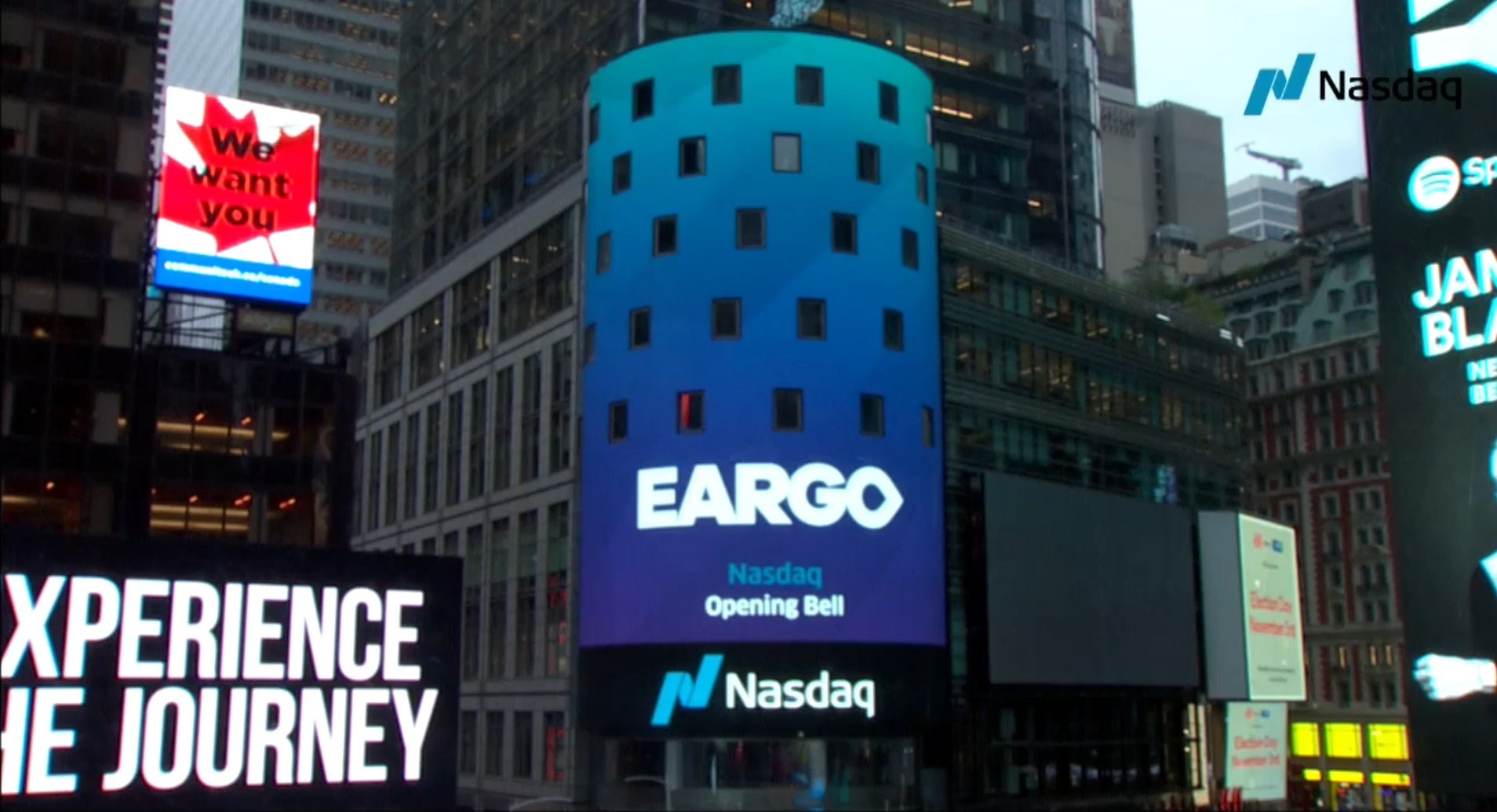
Eargo went public on Nasdaq on Friday. The hearing aid-maker’s stock now trades under the ticker “EAR.” Photo credit: Screenshot from Nasdaq
A Bay Area startup building tiny, “invisible” hearing aids went public on Friday. Eargo began trading on Nasdaq under the ticker “EAR,” at $18 per share.
In total, the startup expects to sell 7.85 million shares of its stock, bringing in proceeds of more than $141.3 million. The upsized IPO fetched more than Eargo had initially planned, with an expected range of $15 to $16 per share, according to its most recent prospectus.

With the Rise of AI, What IP Disputes in Healthcare Are Likely to Emerge?
Munck Wilson Mandala Partner Greg Howison shared his perspective on some of the legal ramifications around AI, IP, connected devices and the data they generate, in response to emailed questions.
San Jose, Calif.-based Eargo makes small, rechargeable hearing aids that sit in the user’s ear canal, so others can’t see them. They sell for between $1,850 or $3,000 for a pair, depending on the model.
Users control settings, such as whether they’re in a crowded room or on a phone call, through a companion app. The devices aren’t sold in clinics, but instead shipped directly to consumers’ homes.
Earlier this year, Eargo raised $71 million in a funding round led by Gilde Healthcare and Longitudinal Capital. To date, it has shipped 42,000 hearing systems, including a little over 9,000 in the most recent quarter. But a substantial portion of customers have returned their devices — roughly 28% in the first half of 2020 — according to Eargo’s prospectus.
The company brought in 28.59 million in revenue in the first six months of 2020, up from $14.45 million during the same period last year. But it also reported an $18.3 million let loss during the first half of 2020, compared to $18.98 million in the first half of 2019. In the second quarter of 2020, it reduced its headcount by 45 employees.
The company plans to use roughly $50 million in IPO proceeds for sales and marketing, and another $20 million for research and development. J.P. Morgan and BofA Securities served as lead book-running managers for the deal.














